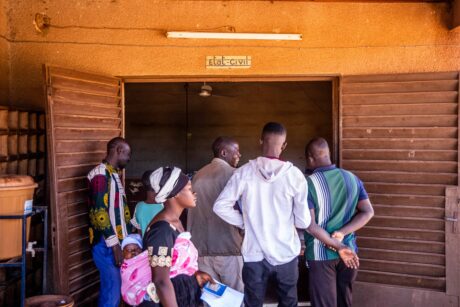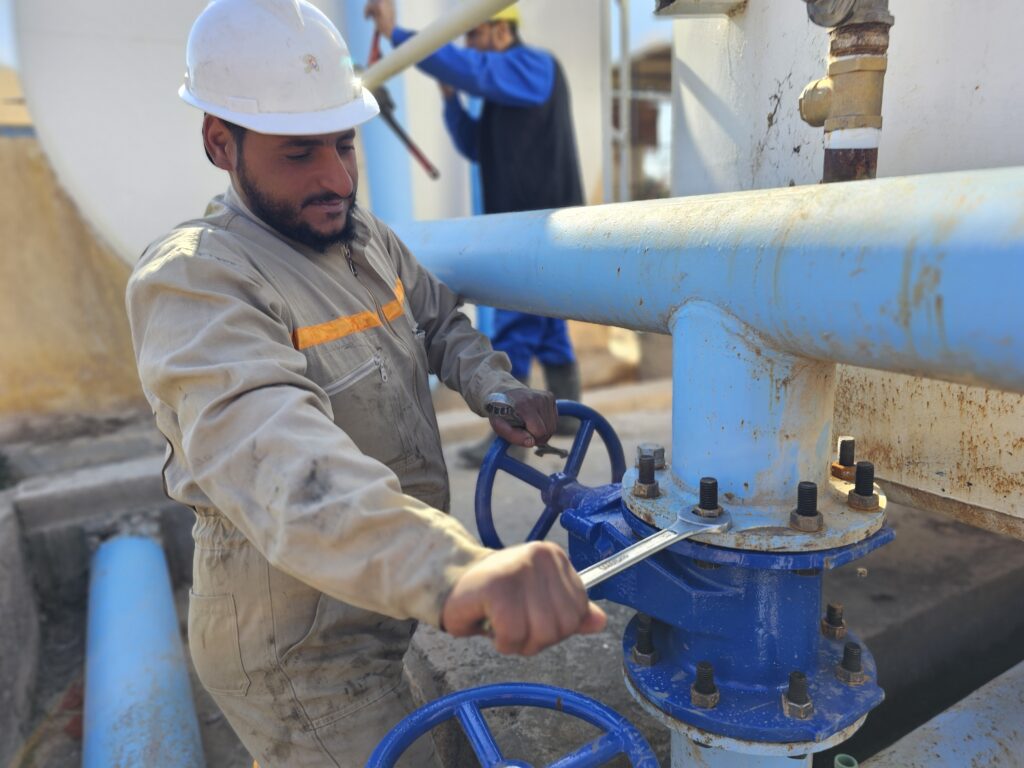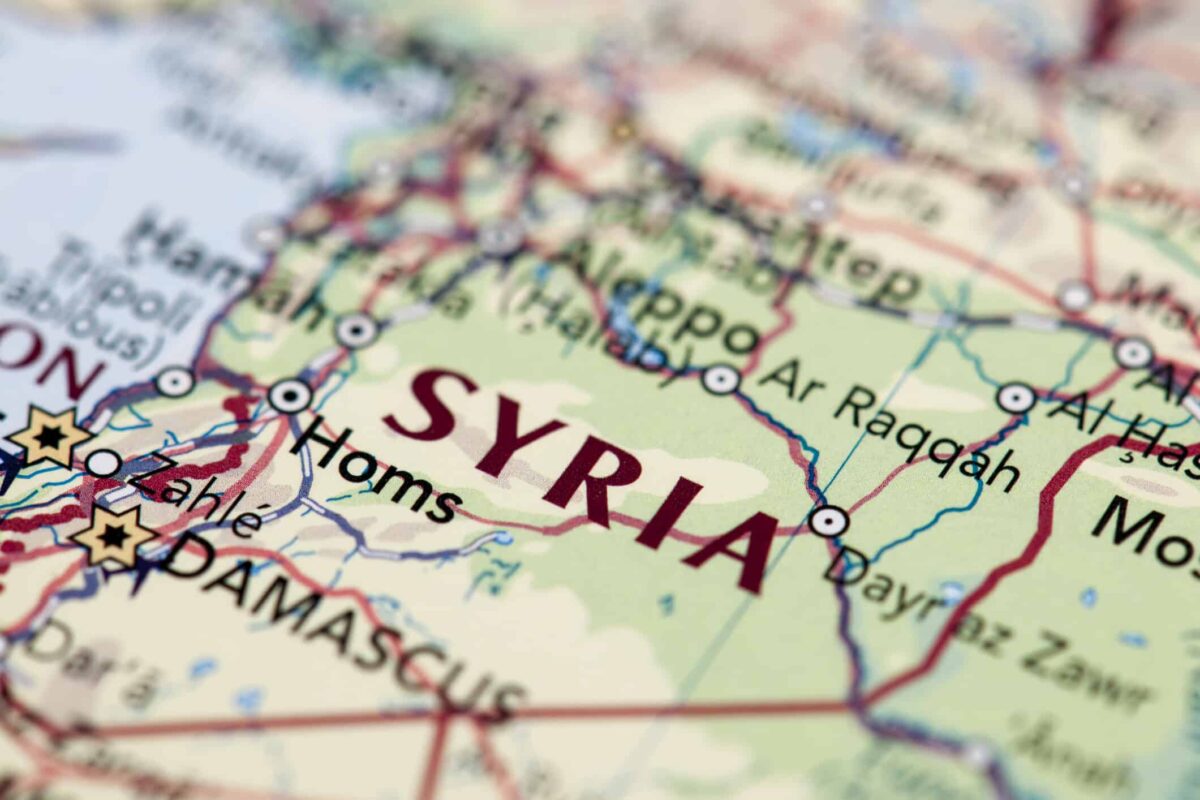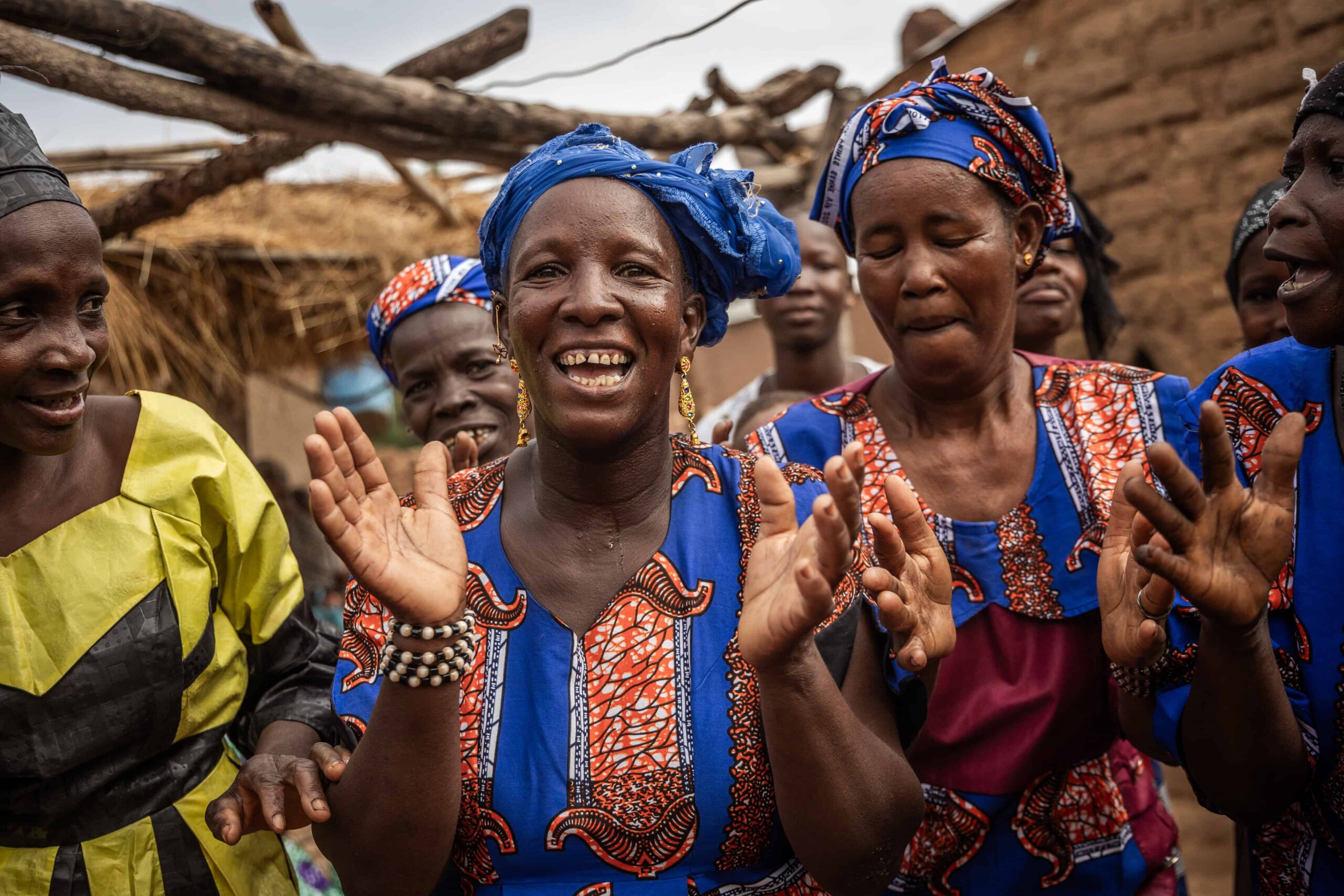Sometimes it takes a bulldozer to improve a neighborhood’s quality of life.
In Al Busaira, Deir Ezzor, in northeast Syria, a front loader sat idle for over six months, emblematic of the region’s infrastructure struggles. Streets filled with garbage and roads blocked by debris became part of daily life. Then, with an engine overhaul and electrical system repairs, the vehicle returned to service. It became a key part of a month-long cleaning campaign, clearing roads and maintaining the town’s water network.
“When the front loader was down, waste management services deteriorated, and the streets were filled with garbage,” a local resident said. “After it was repaired, there was a noticeable improvement in our community. Roads were cleared, and waste was finally being transported regularly.”
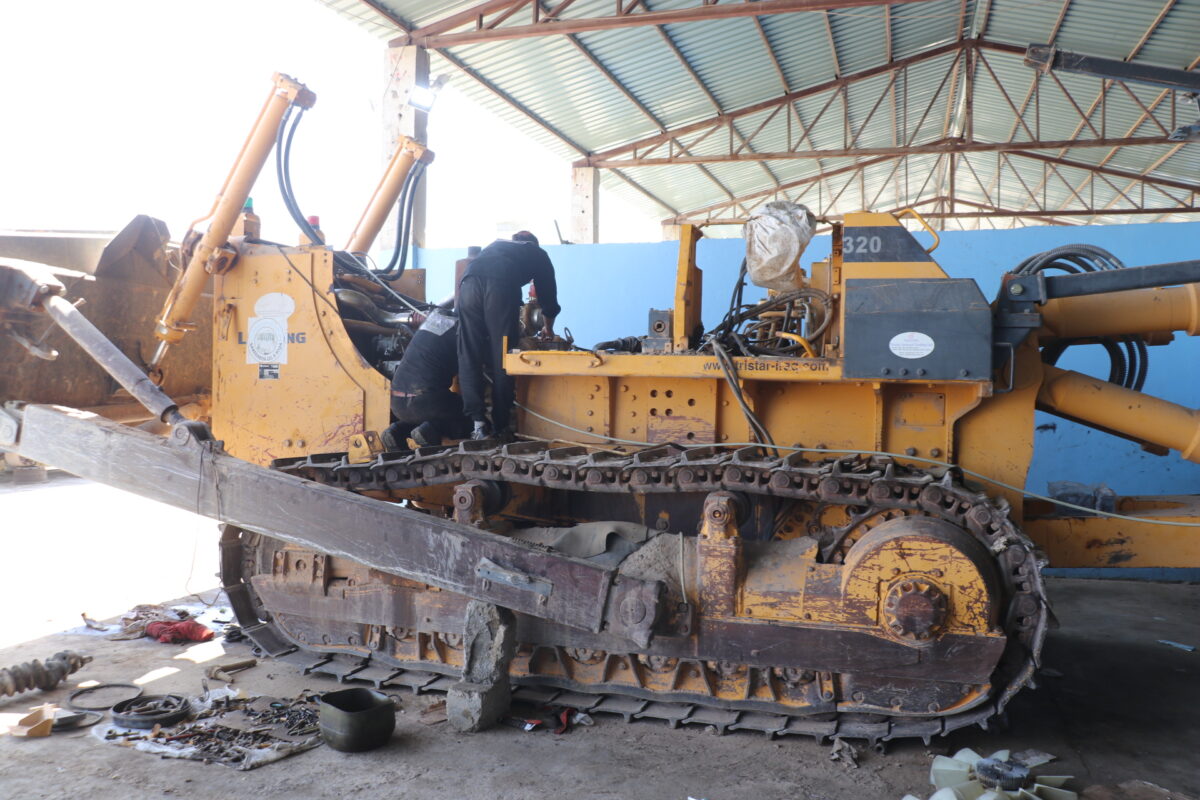
This practical solution, driven by Creative’s FURAT III project, highlights the tangible infrastructure improvements being made in northeast Syria.
From August 2023 to May 2024, FURAT III embarked on a mission to breathe new life into the municipalities of Deir Ezzor, Raqqa, Tabqa, Manbij and Al Jazeera in northeast Syria. Funded by the US State Department, FURAT III tackled a fundamental issue: maintaining and repairing vehicles and heavy machinery essential for municipal services. This initiative has transformed local communities, ensuring that vital services continue to function effectively.
Syria’s infrastructure has been severely impacted by years of conflict, leaving many areas struggling with damaged roads, disrupted water and sewage systems, and inadequate waste management. The destruction has hampered the ability of local governments to provide essential services, exacerbating the challenges faced by communities trying to rebuild their lives. In this context, the FURAT III project has played a crucial role in addressing some of these critical needs.
FURAT III builds upon the past success of the FURAT and FURAT Plus projects, which targeted vehicle maintenance in several regions.
Gearing up for long-term change
FURAT III goes beyond short-term solutions by providing a framework for sustainable long-term peace and stability. Improving local governance and building resilient communities create a foundation for continued development, fostering self-sufficiency and resilience in the region.
With support from FURAT III, garages in the region developed an organized process for municipalities to submit repair and maintenance requests. These requests were evaluated based on the sectors served by the vehicles and the population’s needs.
By prioritizing the most in-demand vehicles, the project minimized disruptions in service delivery. From front loaders and waste compactors to road rollers, tractors and sewage suction trucks, these vehicles are indispensable for tasks such as repairing water and sewage networks, road rehabilitation, waste removal and even supporting agricultural activities. Timely maintenance and repair of these vehicles have ensured the continued provision of essential services across northeast Syria.
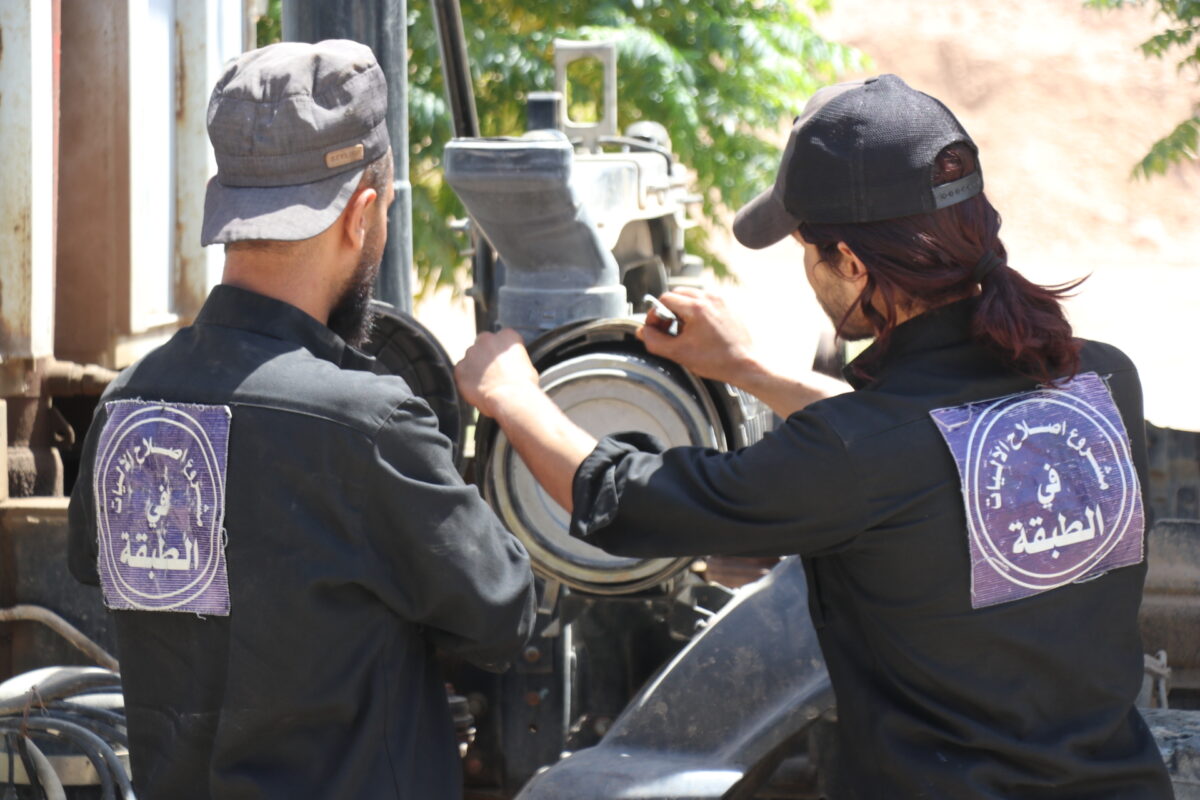
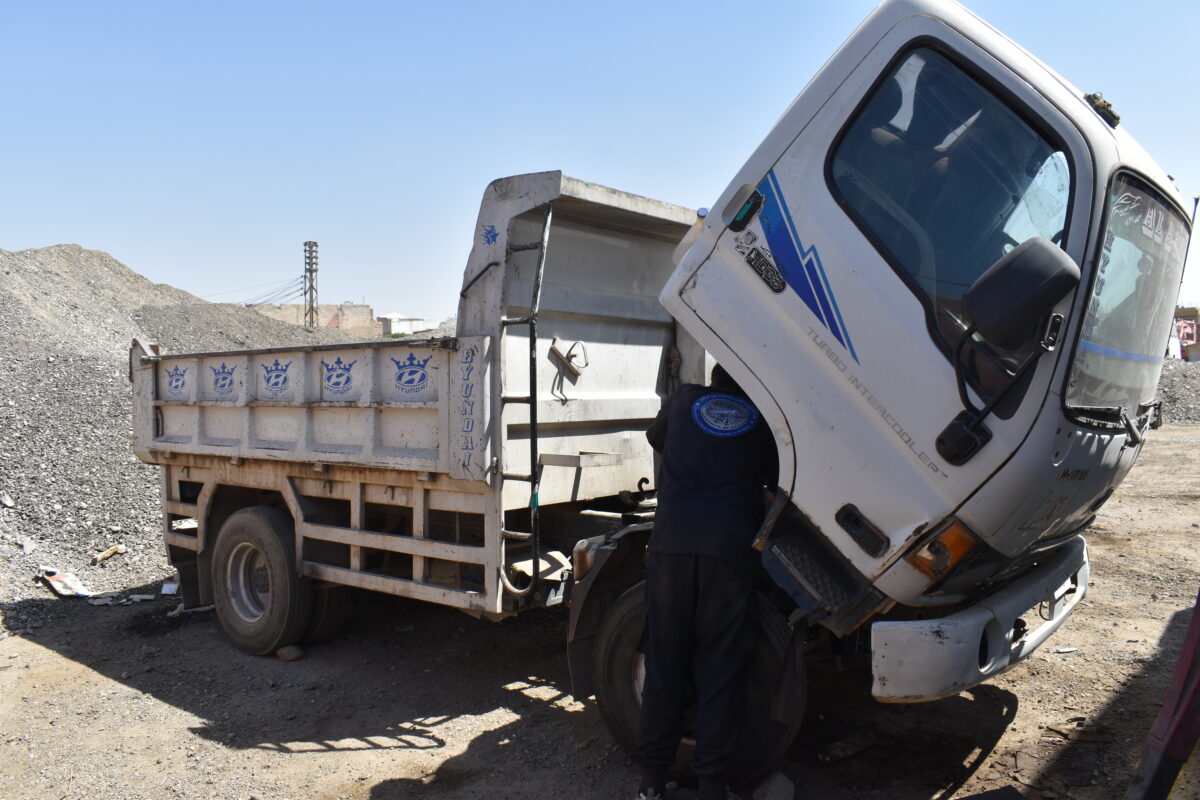
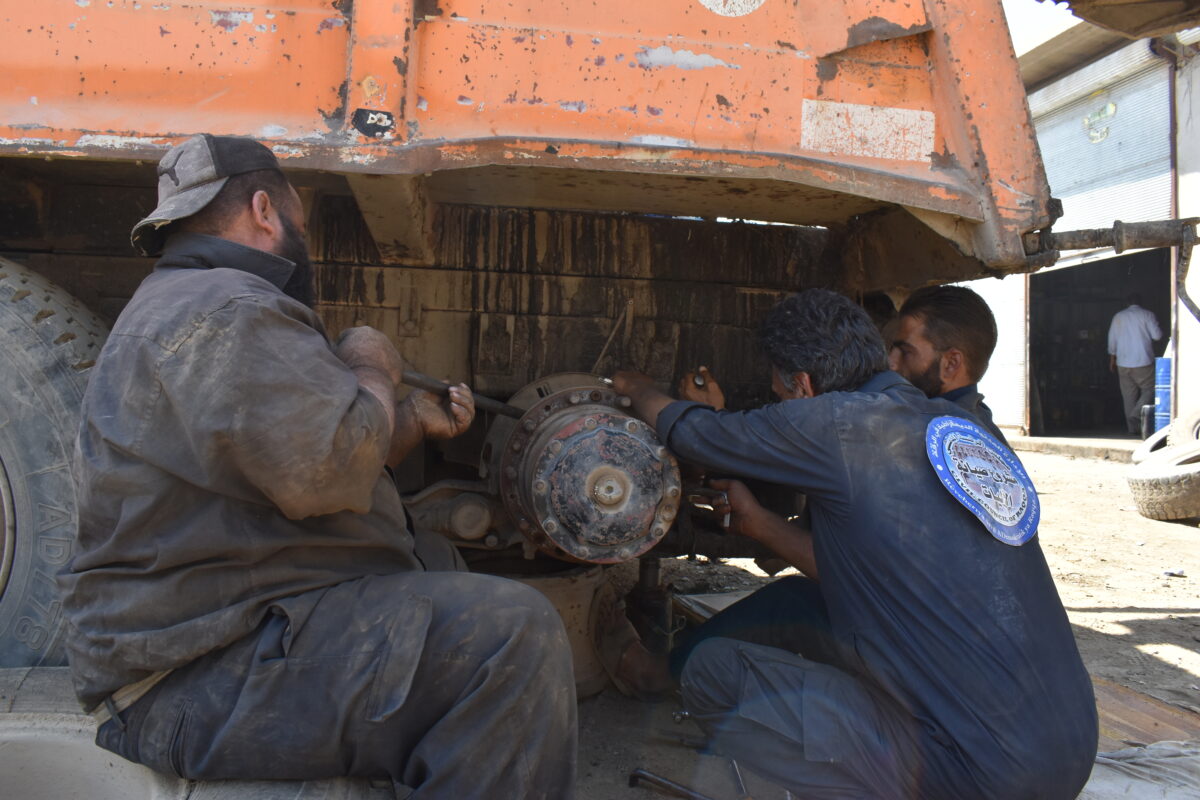
In Sa’wa, Deir Ezzor, the repair of a waste compactor had a profound impact on waste management in the western countryside. The vehicle, after receiving new tires, hydraulic repairs, and brake fixes, resumed daily waste collection from municipalities, significantly improving cleanliness and reducing health risks in the community.
“During the time the compactor was broken, waste piled up everywhere, and the smell was unbearable,” one resident said. “We feared for our children’s health. Now, the streets are clean again, and the waste is removed regularly.”
Meanwhile, in 7 Kilo, Deir Ezzor, a road roller that had been out of service for five months proved crucial for maintaining roads, especially those connecting farmlands. Repairs included fixing the fuel circuit and electrical maintenance. The road roller’s return facilitated the rehabilitation of critical agricultural roads, improving accessibility for over 100,000 residents.
“The road roller was out of service for so long, but since its repair, we’ve been able to maintain key roads, which has made a huge difference for local farmers and residents,” said the Head of the Deir Ezzor Civil Council Services Committee Garage.
In Al Darbasiya, Al Jazeera, a unique vehicle essential for maintaining public health, the sewage compressor, was repaired after a water pump malfunction. The compressor resumed its critical role in unclogging sewage pipes, which is vital for keeping the streets clean and preventing disease outbreaks.
A citizen expressed their gratitude: “Without this vehicle, our streets would be flooded with sewage, making life unbearable. Thanks to the repairs, our city remains clean and safe.”
Finally, in Tabqa, a crucial piece of machinery, an excavator, that had been out of service for nearly two years was brought back into operation. The excavator’s repair enabled the resumption of vital infrastructure projects, including digging water and drainage lines, preparing sites for electrical poles, and other essential tasks.
The excavator driver highlighted, “This machine is essential for so many community projects. Since the repairs, we’ve been able to dig new waterlines and even prepare for the installation of electricity poles, directly benefiting our community.”
Evaluating success
The success of the vehicle maintenance activities was assessed through extensive data collection and community feedback. The FURAT III team conducted site visits and in-person interviews with over 50 individuals, including municipal heads, garbage workers and local citizens.
Their insights highlighted the significant improvements in service delivery following the repairs. Citizens expressed relief and satisfaction with the restored services, noting the positive impact on their daily lives and the overall well-being of their communities.
“The vehicle maintenance activities under FURAT III have significantly bolstered local governance in northeast Syria by enhancing the delivery of essential services, improving community perceptions of governance responsiveness, and facilitating the reintegration of displaced persons,” said Mohamad Hamish, FURAT III’s Chief of Party.
Moreover, vehicle maintenance improvements have strengthened coordination among stakeholders and built the capacity of local garage workers, contributing to the sustainability of service delivery in the region, ultimately leading to a better quality of life for their communities.
